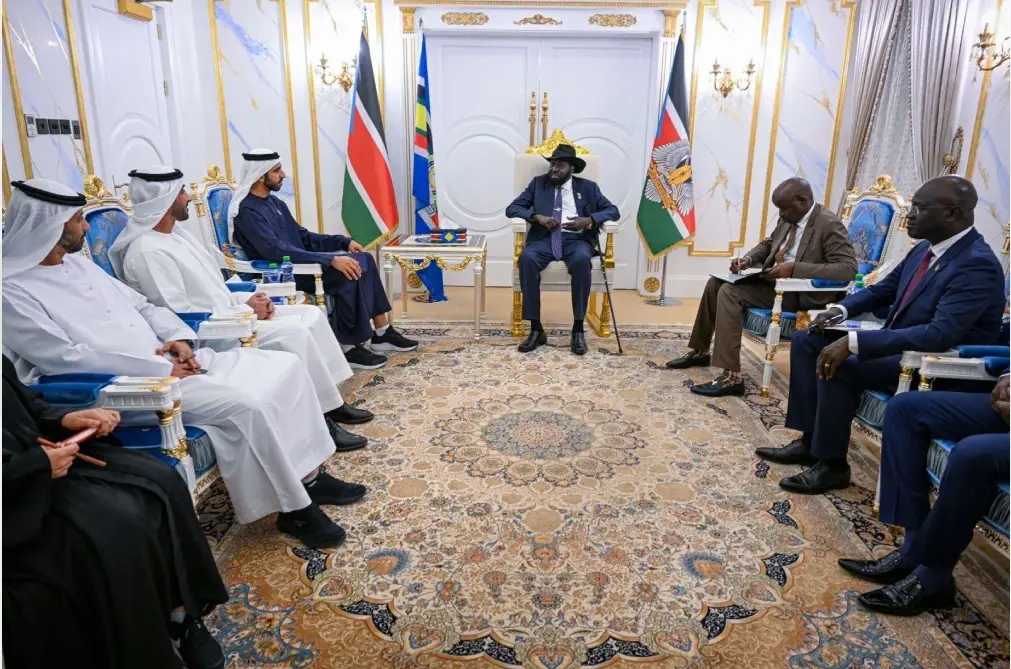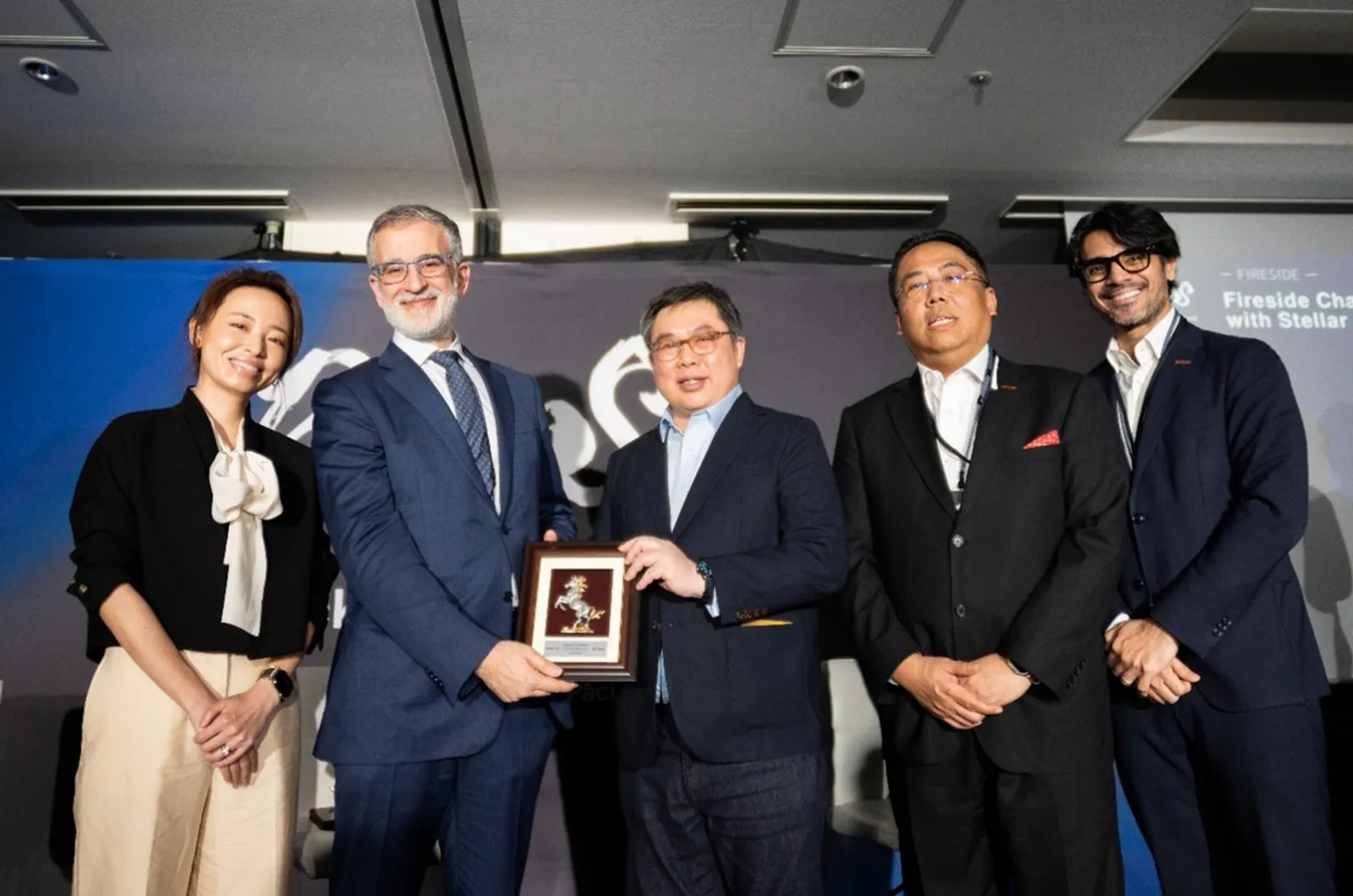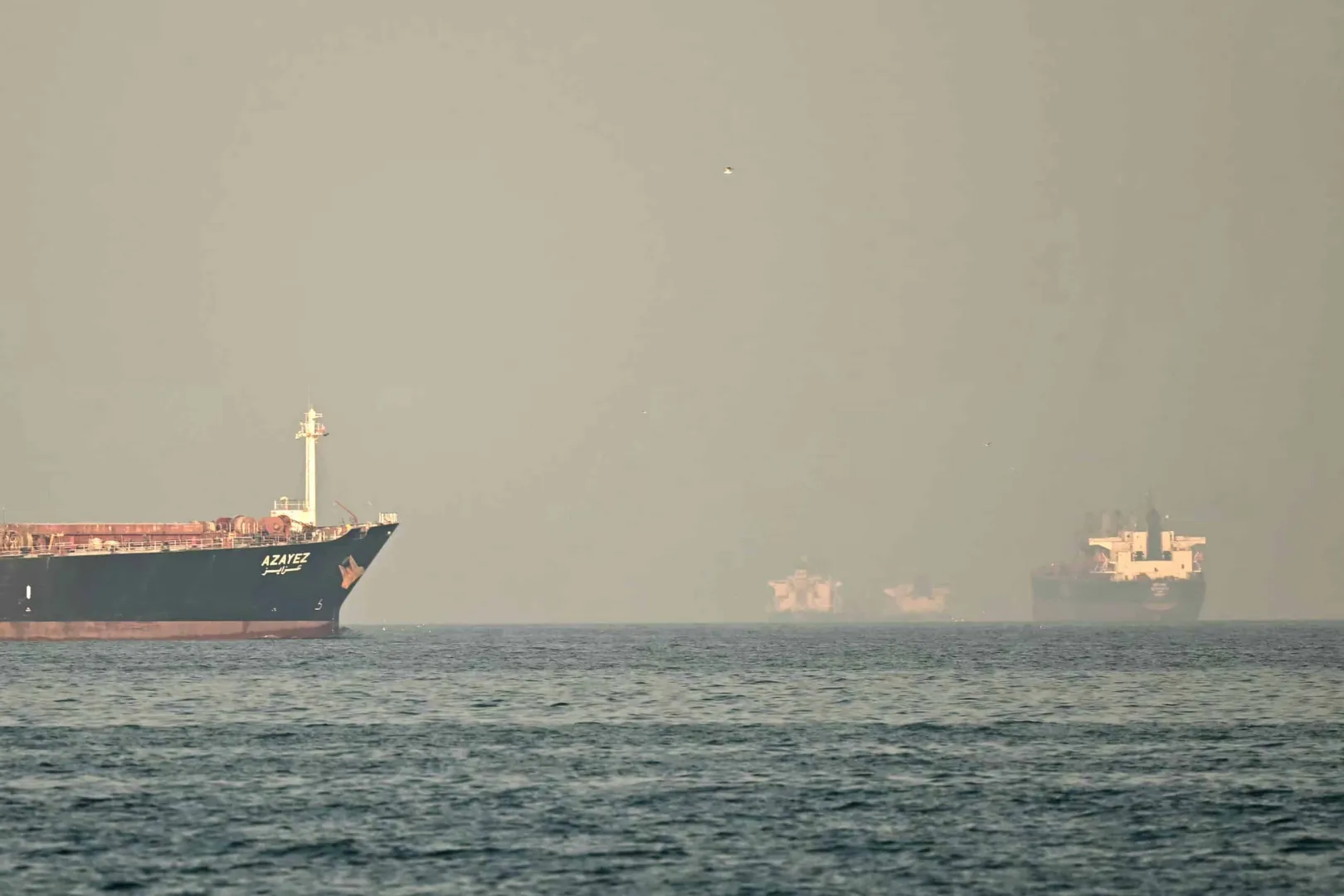The world’s youngest nation, South Sudan, is once again at a critical economic crossroads, facing a severe financial crisis that has pushed its leadership to seek urgent external assistance. In a clear sign of the deepening woes, South Sudan’s President Salva Kiir has undertaken two official trips to the United Arab Emirates (UAE) this year, a strategic diplomatic maneuver aimed at securing a much-needed bailout and attracting investment to a crashing economy. These visits underscore Abu Dhabi’s rising influence in the volatile Horn of Africa region, positioning the UAE as a potential key player in softening the blow of the multifaceted crises currently engulfing Juba.
President Kiir’s most recent lengthy trip, from June 22 to this past Tuesday, was explicitly described by his spokesperson, David Amuor Majur, as an effort to meet with various investment groups and present “a compelling case for investment” in South Sudan’s key growth sectors. Earlier in February, a similar dispatch from Juba indicated the President’s travel was to “discuss co-operation in economic, agricultural, energy and infrastructure sectors.” While Abu Dhabi has remained tight-lipped on the specifics of any agreements, Juba insists it is actively reforming its structures to create a more investor-friendly environment.
The President’s travels, however, were not solely focused on economic resuscitation. They also served as a crucial platform to address the spillover effects of the devastating war in neighboring Sudan, which has forced nearly 200,000 refugees to seek refuge in South Sudan. This humanitarian burden, coupled with the disruption of vital oil exports through Sudan, has only exacerbated South Sudan’s already precarious economic situation. The UAE, having severed diplomatic ties with Sudan’s military government but maintaining indirect communication channels, has leveraged South Sudan’s role as a go-between to elevate its regional profile, notably inaugurating a 100-bed field hospital in Northern Bahr el Ghazal state in March to serve refugees and local communities.
This desperate search for external support comes as South Sudan grapples with severe internal economic turmoil: civil servants have gone without pay for months, some even resorting to legal action in foreign jurisdictions like Nairobi. Political reforms, integral to the 2018 peace deal, have largely missed deadlines or stalled, according to a recent report by the Reconstituted Joint Monitoring and Evaluation Commission (R-JMEC). Adding to the complexity, a disputed $13 billion oil-for-loan deal with a private UAE firm, the Hamad bin Khalifa Department of Projects, was refuted by Juba, though the government spokesperson did not deny the pursuit of similar financing. With nearly 98 percent of its revenues derived from oil exports, and much of its future production already sold, South Sudan’s economy is teetering on the brink, facing an expected 4.3 percent GDP loss and an annual inflation rate of 143 percent. A recent African Development Bank (AfDB) report paints a stark picture: 92 percent of its 16 million population now live below two dollars a day, a staggering 55.4 percent rise from poverty levels at the country’s secession from Sudan 14 years ago. Amidst this bleak outlook, the International Monetary Fund (IMF) has stepped in, agreeing to a nine-month Staff-Monitored Programme (SMP) starting in August 2025, aimed at strengthening economic resilience, macroeconomic stability, sustainability, governance, and transparency.
South Sudan’s Economic Quagmire: A Nation in Distress
South Sudan’s economic struggles are deeply rooted in its tumultuous history since gaining independence from Sudan in 2011. Despite possessing sub-Saharan Africa’s third-largest oil reserves, the nation has failed to translate this immense natural wealth into sustainable development or improved living standards for its citizens. Instead, a combination of prolonged internal conflicts, pervasive corruption, weak governance, and a near-total reliance on oil has created a fragile and vulnerable economy.
The Legacy of Conflict:
The optimism that accompanied independence quickly faded with the outbreak of civil war in December 2013, followed by renewed fighting in 2016. These conflicts devastated infrastructure, displaced millions, disrupted agricultural production, and severely impacted oil output—the lifeblood of the economy. The constant state of insecurity has deterred foreign investment, diverted national resources to military spending, and crippled essential public services. The World Bank consistently highlights the severe impact of conflict on South Sudan’s development indicators.
Pervasive Poverty:
The human cost of this economic instability is staggering. The AfDB report, citing World Bank poverty data, reveals a harrowing trend: the share of the South Sudanese population living below the poverty line surged from 51 percent in 2011 to 82 percent in 2022. By 2023, it worsened to 84 percent, reaching a shocking 92 percent in 2024. This means that nearly 15 million people out of a population of 16 million are now living on less than two dollars a day. This dramatic increase in poverty, a 55.4 percent rise since secession, underscores a systemic failure to build a resilient and inclusive economy. The African Development Bank’s Country Focus 2025 for South Sudan explicitly links rising poverty to conflict, its impact on oil production, and the overall toll on economic and development indicators.
Unpaid Civil Servants and Fiscal Distress:
The news of civil servants going without pay for months is a stark indicator of the government’s severe fiscal distress. This issue, which has even led to legal action in foreign jurisdictions like Nairobi, points to a chronic liquidity crisis within the government. Such arrears not only cause immense hardship for public sector employees but also cripple public service delivery, undermine trust in government, and stifle local economies that rely on these salaries. This situation is often a symptom of poor public financial management, revenue shortfalls, and potentially, misallocation of funds.
Stalled Political Reforms:
The 2018 Revitalized Agreement on the Resolution of the Conflict in South Sudan (R-ARCSS) was hailed as a landmark peace deal aimed at ending the civil war and ushering in a period of political transition and stability. However, as the Reconstituted Joint Monitoring and Evaluation Commission (R-JMEC) reports, many of the programs and deadlines outlined in the agreement have been missed or stalled. Key components, such as security sector reforms, constitutional making processes, and the establishment of unified forces, have faced significant delays. This political stagnation directly impacts economic stability, as a predictable and secure environment is a prerequisite for investment and growth. The lack of progress on governance reforms also perpetuates the conditions ripe for corruption and mismanagement, further exacerbating the economic crisis.
The Oil Curse: Dependence and Disruption
South Sudan’s economy is almost entirely dependent on oil. With nearly 98 percent of its government revenues derived from oil exports, the nation is exceptionally vulnerable to fluctuations in global oil prices and, crucially, disruptions in its production and export infrastructure. This extreme reliance is often referred to as the “resource curse,” where abundant natural resources paradoxically lead to economic instability and underdevelopment due to a lack of diversification and susceptibility to external shocks.
Production and Export Vulnerabilities:
South Sudan’s oil fields, primarily located in the Unity and Upper Nile regions, have a production capacity of approximately 150,000 barrels per day (bpd). However, the country is landlocked, meaning its oil must be transported via pipelines through neighboring Sudan to the Red Sea port of Port Sudan for onward export. This reliance on a single, politically unstable transit route is a major strategic vulnerability.
The ongoing war in Sudan has directly impacted South Sudan’s oil lifeline. The news highlights that supplies to Port Sudan have been “hugely disrupted by the war in the north.” A critical incident occurred in February 2024 when a pipeline was damaged in Sudan, halting exports entirely. While the IMF notes that oil production has resumed following repairs, such incidents underscore the fragility of South Sudan’s primary revenue stream. Any prolonged disruption can immediately cripple the national budget, leading to severe liquidity crises and a further inability to pay civil servants or fund essential services.
Pre-financing Oil and Future Revenue:
The revelation that some of South Sudan’s oil production is “already sold up to 2026 before extraction” points to a practice known as pre-financing or oil-backed loans. In such arrangements, a country receives upfront cash in exchange for future oil deliveries. While this can provide immediate liquidity, it mortgages future revenues, leaving the government with less discretionary income in the coming years. This practice is often a sign of desperate financial straits and can trap a country in a cycle of debt, especially if oil prices fall or production is disrupted, making it difficult to meet repayment obligations. The main buyers of South Sudan’s oil have historically included China, Japan, Italy, and Singapore, indicating a diverse set of international partners involved in these complex arrangements.
UAE’s Growing Footprint in the Horn of Africa
The UAE’s increasing engagement in the Horn of Africa, particularly its willingness to consider a bailout for South Sudan, is part of a broader, strategic foreign policy. Abu Dhabi has significantly expanded its economic and geopolitical influence across the continent, driven by a combination of economic diversification goals, food security concerns, and a desire to enhance its regional and global standing.
Motivations for UAE Engagement:
- Economic Diversification: The UAE is actively diversifying its economy away from oil, investing heavily in logistics, ports, technology, and renewable energy globally. African markets, with their vast untapped potential, fit well into this strategy.
- Food Security: The Horn of Africa, with its agricultural potential, is of interest to the UAE as it seeks to secure food supplies for its rapidly growing population. Investments in agriculture and infrastructure can serve this strategic interest.
- Geopolitical Influence: By providing aid, investment, and diplomatic mediation, the UAE enhances its soft power and influence in a strategically vital region. The Horn of Africa sits at the crossroads of major shipping lanes and is a key gateway to the wider African continent.
- Humanitarian Diplomacy: The inauguration of the Madhol Field Hospital in South Sudan, following a $200 million humanitarian aid pledge at a conference on Sudan, demonstrates the UAE’s growing role in humanitarian diplomacy. This not only addresses critical needs but also burnishes its international image.
- Counterbalancing Rivals: In some instances, UAE’s engagement can be seen as part of a broader regional competition for influence, particularly with other Gulf states or international powers.
The “Go-Between” Role in Sudan:
South Sudan’s position as a “key contact as a go-between” in the conflict between Sudan’s military government and the UAE highlights the complex diplomatic landscape. While Sudan severed diplomatic ties with the UAE, maintaining communication through South Sudan allows for indirect engagement and potential mediation efforts. This role elevates South Sudan’s diplomatic standing, even as it struggles with its own internal crises. The UAE’s humanitarian efforts in South Sudan, serving refugees from the Sudan war, further underscore its strategic approach to regional stability, which indirectly benefits its broader interests.
The Search for Lifelines: Bailouts, Deals, and Debt
South Sudan’s desperate economic situation has forced it to actively seek various forms of external financing, ranging from direct bailouts to complex oil-backed deals.
The Disputed $13 Billion Oil Deal:
The report of a potential $13 billion oil deal with the “Hamad bin Khalifa Department of Projects,” a private firm, is particularly noteworthy. While South Sudan’s government spokesperson refuted that a deal had been signed, he did not deny the country was “looking for similar financing.” This suggests an ongoing pursuit of large-scale, potentially unconventional, financing arrangements.
- Hamad bin Khalifa Department of Projects: This entity, while bearing the name of a former Emir of Qatar, operates as a private firm focusing on large-scale development projects. Its involvement in such a significant oil-for-loan deal would be a major undertaking, signaling a willingness to engage in high-risk, high-reward ventures in politically complex environments.
- Oil-for-Loan Deals: These arrangements, where future oil production is pledged as collateral for a loan, are common in resource-rich but cash-strapped nations. They offer immediate liquidity but carry significant risks:
- Mortgaging Future Revenues: They reduce a country’s future fiscal flexibility, as a portion of its primary revenue stream is already committed.
- Price Volatility: If global oil prices fall, the value of the collateral decreases, potentially leading to demands for more oil or additional collateral, exacerbating debt.
- Production Risks: Disruptions to oil production (e.g., pipeline damage, security issues) can make it impossible to meet delivery obligations, triggering default clauses.
- Lack of Transparency: These deals are often opaque, making it difficult for citizens and oversight bodies to assess their true cost and benefit, increasing opportunities for corruption.
The pursuit of such a large loan, equivalent to many years of South Sudan’s current GDP, underscores the severity of its financial crisis and its limited traditional financing options.
Unpaid Salaries and Legal Redress:
The plight of civil servants, some of whom have gone without pay for months and are seeking legal redress in foreign jurisdictions like Nairobi, highlights the extreme internal pressure on the government. This situation not only creates a humanitarian crisis for affected families but also signals a breakdown in state capacity and fiscal discipline. The fact that employees are seeking legal recourse outside South Sudan indicates a lack of trust in domestic legal mechanisms and the severity of the financial hardship they face.
A Deepening Humanitarian Crisis: Poverty and Displacement
The economic turmoil in South Sudan is inextricably linked to a profound and worsening humanitarian crisis. The staggering poverty rate of 92 percent, with nearly 15 million people living on less than two dollars a day, paints a grim picture of daily life for the majority of the population. This is not merely a statistic; it represents widespread food insecurity, limited access to healthcare, education, and basic services.
Causes of Poverty:
While conflict is a primary driver, other factors contribute to the deepening poverty:
- Displacement: Millions have been displaced by conflict, both internally and as refugees in neighboring countries. Displacement disrupts livelihoods, separates families, and strains host communities.
- Food Insecurity: Conflict, climate shocks (droughts, floods), and economic instability have severely impacted agricultural production, leading to chronic food insecurity. Many areas rely heavily on humanitarian food assistance.
- Lack of Diversification: The economy’s over-reliance on oil means that when oil revenues falter, there are few alternative sources of income or employment for the vast majority of the population. Non-oil sectors like agriculture, livestock, and fisheries remain largely underdeveloped despite their potential.
- Weak Governance and Corruption: A significant portion of national wealth is siphoned off through corruption, leaving insufficient funds for public services and development initiatives that could lift people out of poverty.
The presence of nearly 200,000 refugees from the Sudan war further strains South Sudan’s already stretched resources and humanitarian response capacity. While the UAE’s Madhol Field Hospital offers crucial support, the scale of need remains immense.
The IMF’s Guiding Hand: A Path Towards Reform
Amidst the economic chaos, the International Monetary Fund (IMF) has stepped in, offering a structured path towards reform through a Staff-Monitored Programme (SMP). This agreement, reached between IMF staff and South Sudanese authorities last month, is set to begin in August 2025.
What is an SMP?
An SMP is an informal agreement between a country’s authorities and IMF staff to monitor the implementation of the authorities’ economic program. Unlike a full-fledged IMF loan program (like the ECF in the DRC’s case), an SMP does not involve financial disbursements from the IMF. Instead, it serves as a crucial tool for:
- Building a Track Record: It allows a country to establish a track record of implementing sound macroeconomic policies and structural reforms, which is often a prerequisite for future financial assistance from the IMF or other international lenders.
- Policy Guidance: IMF staff provide technical assistance and policy advice, helping authorities design and implement effective reforms.
- Signaling Commitment: An SMP signals to the international community (donors, investors, creditors) that the country is committed to economic stability and reform, potentially unlocking other sources of financing or debt relief.
Key Objectives of South Sudan’s SMP:
The SMP for South Sudan will support “designing and implementing policies and key reforms to strengthen its economic resilience to shocks, enhance macroeconomic stability, restore sustainability, and improve governance and transparency.” Specific areas of focus are likely to include:
- Fiscal Discipline: Improving revenue collection (especially from non-oil sources), rationalizing expenditure, and controlling public debt.
- Monetary Policy: Stabilizing the exchange rate and bringing down hyperinflation.
- Public Financial Management: Enhancing transparency and accountability in government spending, potentially including reforms similar to the Treasury Single Account (TSA) being implemented in the DRC.
- Governance and Anti-Corruption: Implementing measures to combat corruption, which is a major impediment to economic development and investor confidence.
- Debt Sustainability: Addressing the issue of pre-financed oil deals and other debt obligations to ensure the country’s long-term financial viability.
The IMF’s involvement, even through a non-financing SMP, is a critical step. It provides a framework for the South Sudanese government to demonstrate its commitment to reform and rebuild trust with international partners. The success of this program will depend heavily on the political will of the leadership to implement difficult but necessary changes, especially in areas of governance and transparency.
Featured ESG Tool of the Week:
Klimado – Navigating climate complexity just got easier. Klimado offers a user-friendly platform for tracking local and global environmental shifts, making it an essential tool for climate-aware individuals and organizations. In an era where climate data can be overwhelming, Klimado provides clarity and actionable insights, empowering users to make informed decisions for a more sustainable future.
Conclusion
South Sudan’s desperate search for a UAE bailout underscores the severe economic and humanitarian crisis gripping the young nation. Its near-total dependence on oil, coupled with the devastating impact of internal conflicts and the ongoing war in Sudan, has pushed its economy to the brink, leaving millions in extreme poverty and civil servants unpaid. While President Kiir’s diplomatic efforts in the UAE signal a proactive approach to securing much-needed capital and investment, the success of these endeavors hinges on fundamental internal reforms. The IMF’s Staff-Monitored Programme offers a crucial roadmap for strengthening governance, enhancing transparency, and building economic resilience. However, without a sustained commitment to peace, diversification away from oil, and rigorous fiscal discipline, South Sudan risks remaining trapped in a cycle of instability and dependency. The coming months, particularly with the commencement of the IMF program, will be critical in determining whether South Sudan can finally pivot towards a path of sustainable development and prosperity for its long-suffering population.
Photo source: Google
By: Montel Kamau
Serrari Financial Analyst
8th July, 2025
Article, Financial and News Disclaimer
The Value of a Financial Advisor
While this article offers valuable insights, it is essential to recognize that personal finance can be highly complex and unique to each individual. A financial advisor provides professional expertise and personalized guidance to help you make well-informed decisions tailored to your specific circumstances and goals.
Beyond offering knowledge, a financial advisor serves as a trusted partner to help you stay disciplined, avoid common pitfalls, and remain focused on your long-term objectives. Their perspective and experience can complement your own efforts, enhancing your financial well-being and ensuring a more confident approach to managing your finances.
Disclaimer: This article is for informational purposes only and does not constitute financial advice. Readers are encouraged to consult a licensed financial advisor to obtain guidance specific to their financial situation.
Article and News Disclaimer
The information provided on www.serrarigroup.com is for general informational purposes only. While we strive to keep the information up to date and accurate, we make no representations or warranties of any kind, express or implied, about the completeness, accuracy, reliability, suitability, or availability with respect to the website or the information, products, services, or related graphics contained on the website for any purpose. Any reliance you place on such information is therefore strictly at your own risk.
www.serrarigroup.com is not responsible for any errors or omissions, or for the results obtained from the use of this information. All information on the website is provided on an as-is basis, with no guarantee of completeness, accuracy, timeliness, or of the results obtained from the use of this information, and without warranty of any kind, express or implied, including but not limited to warranties of performance, merchantability, and fitness for a particular purpose.
In no event will www.serrarigroup.com be liable to you or anyone else for any decision made or action taken in reliance on the information provided on the website or for any consequential, special, or similar damages, even if advised of the possibility of such damages.
The articles, news, and information presented on www.serrarigroup.com reflect the opinions of the respective authors and contributors and do not necessarily represent the views of the website or its management. Any views or opinions expressed are solely those of the individual authors and do not represent the website's views or opinions as a whole.
The content on www.serrarigroup.com may include links to external websites, which are provided for convenience and informational purposes only. We have no control over the nature, content, and availability of those sites. The inclusion of any links does not necessarily imply a recommendation or endorsement of the views expressed within them.
Every effort is made to keep the website up and running smoothly. However, www.serrarigroup.com takes no responsibility for, and will not be liable for, the website being temporarily unavailable due to technical issues beyond our control.
Please note that laws, regulations, and information can change rapidly, and we advise you to conduct further research and seek professional advice when necessary.
By using www.serrarigroup.com, you agree to this disclaimer and its terms. If you do not agree with this disclaimer, please do not use the website.
www.serrarigroup.com, reserves the right to update, modify, or remove any part of this disclaimer without prior notice. It is your responsibility to review this disclaimer periodically for changes.
Serrari Group 2025
















